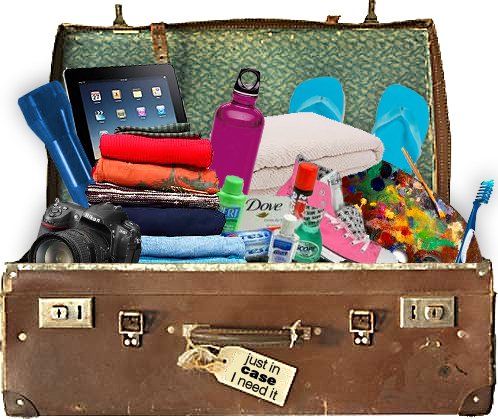
I'm getting ready to move soon, and I can't help but notice that I have a lot of stuff. I mean, lots of it.
Most of it, I don't even use. Some of it, I forgot I even had.
It's ridiculous, really.
I expect the vast majority of you are in similar situations with your belongings, unless you've really embraced the minimalist lifestyle (and, if you have, good for you....I applaud you).
Americans, and the western world in general, have an excess of material possessions. Even the poorest among us are almost always still considered rich compared to the majority of the planet's population.
I'm kind of disgusted by all the excess junk I have, and it got me wondering a couple of things:
- 1) Why do I have so much "stuff"? (and, this question applies to western society in general, too)
- 2) Can this excess be used to help other people in some way?
The Unbearable Heaviness of Too Many Possessions
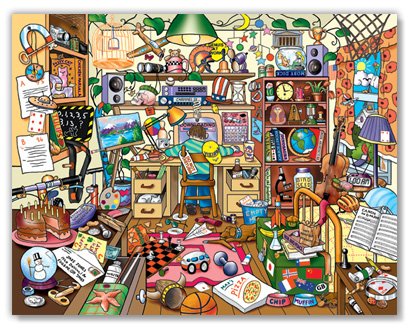
Let's face it, most of us have way more than we need. We may feel short on money, but when you look around at all that most of us have, we're really doing all right. In fact, we might have MORE money if we didn't spend it all on the junk that accumulates in our houses, garages, basements, attics, closets, and storage sheds.

How many things do you own that you actually use?
On the other hand, how many of your belongings are packed away somewhere, and you haven't seen or used them for months, or even years (holiday decorations don't count)?
If you haven't used something in a year, you probably never will. Why hold onto it?
The energy attached to all of those material possessions actually drags you down. It's this heavy load you carry with you everywhere you go, even if you aren't moving. The weight of those belongings follows you everywhere, be it to the grocery store, the bank, a theme park, or even just driving down the road in your car.
You may not notice it consciously, but your subconscious does. Have you ever had a garage sale, or given a bunch of stuff away to a friend or to charity? Did you notice how much lighter and happier you felt afterward?
That's because your subconscious was no longer burdened by the weight of all of those things. You can actually improve your level of happiness by having less stuff.
Why DO We Have So Many Material Belongings?
Our consumer-based culture encourages it. We are constantly bombarded with images on TV, the Internet, print ads, and billboards telling us what new and cool things we simply MUST buy. Those images and slogans create a sense of want in us that is only satisfied when we buy what the advertisers are selling us. Without those things, we feel incomplete, and separated from the rest of our society.

Not having the latest trendy things in western society can actually make someone feel like a social outcast, whether they are treated that way or not. It can cause embarrassment, and withdrawal from friends and family, because, without these belongings, we feel like we're not "keeping up with the Joneses." We feel like we're not good enough.
That's some pretty powerful advertising.
But, advertisers have gotten their craft down to a finely honed psychological science over the decades. It's particularly effective on children and adolescents, who really MAY be ostracized by their peers if they don't have the latest trendy consumer goods. However, it works extremely well on adults, too, even if it's on a more subtle level.
Sentimentality Plays a Role, Too
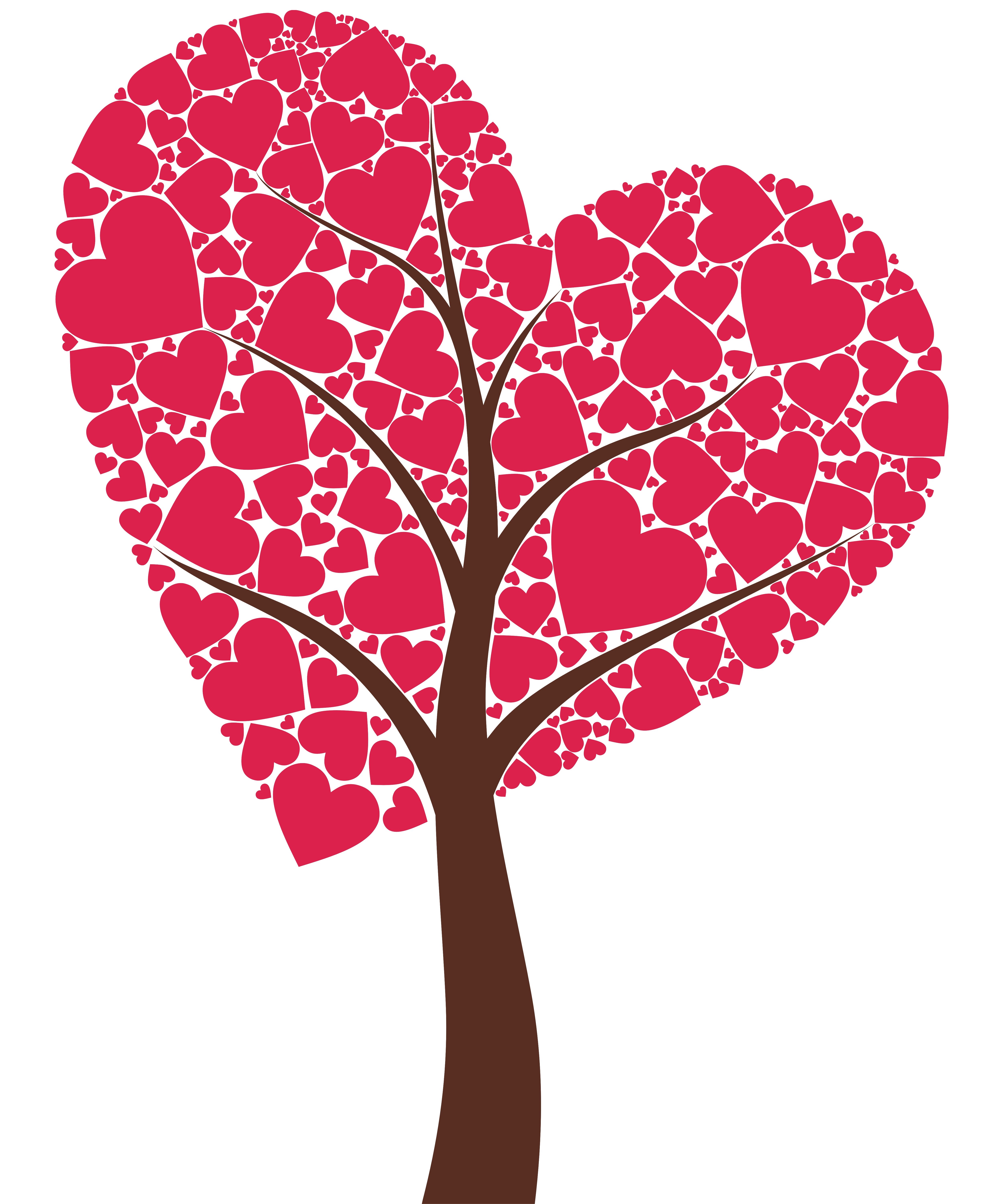
This one is especially strong for me. As the family genealogist, I'm often the one entrusted to hold onto family heirlooms. I'm also almost always on the team of relatives cleaning out the house of a deceased family member, and I end up with a lot of their things this way.
I once had two entire households' worth of furniture packed into one house, because I took nearly everything no one else wanted from my great-grandmother and my great-aunt's houses after they were gone. And, that's not even counting the smaller odds and ends. It was crazy.
I've always hated to get rid of any of things things, because I've thought I would be betraying those relatives somehow.
I'm sure I'm not the only one who has fallen prey to this. I call it The Trap of Sentimentality.
When I did a long-distance move about a decade ago, I was forced to sell some of that old furniture in order to keep our moving costs reasonable. I can't begin to tell you how guilty I felt, like I'd personally insulted those beloved, departed relatives by getting rid of some of their things.
It was only about six years ago, when my oldest cat was ill with diabetes and needed expensive treatment that I began to ruthlessly sell more of those old heirlooms, understanding, finally, that a living person or animal is far more important than any material possession.
I also understood, for the first time, that my departed relatives were NOT in those objects. They were in my heart and in my memories, and they would think it insane for me to hold onto all of that stuff just because I associated it with them.
I finally felt like I had their permission to let most of it go.
Finding the Joy in Removing the Excess
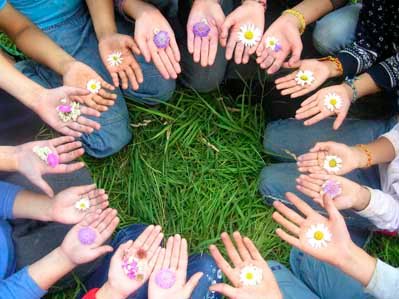
When I felt okay about getting rid of the heirlooms, I started to want to get rid of other things, too.
Of course, it's often hard to find time to just pile up things and donate them, sell them, or give them away. So, I didn't really do much about it, rather than the odd donation here and there, until this new move presented itself to me. Now, I'm really noticing just how much crap I have that I don't use or need.
Based on conversations with other people, and just by observing how others seem to collect things without even trying, I think most of us live this way. We consume material goods without much thought, and end up with houses full of things we never needed or really wanted in the first place. I know people who want to get rid of most of their stuff, but have so much, they don't even know where to begin. So, I can't be the only person thinking about this.
What Do We Do With All of This Extra Stuff?
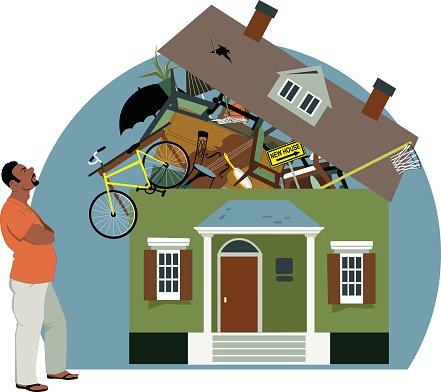
As far as this current move goes, I've come up with a system of dividing things into four piles:
- Keep
- Sell
- Donate
- Throw Away
It's probably a good method for anyone to use when clearing the psychologically heavy excess material goods out of their lives.
For example, I've realized that all those heirlooms that are so precious to me may not mean anything to my children or grandchildren. It could be generations before another family member comes along who is really interested in the family history and genealogy. I can't count on my immediate descendants to take care of or preserve those things.
But, I know who can.
My family has a long history in our home town. There is even a section of the local historical museum devoted to my family. People I knew and loved personally appear on murals and on building names all around town. So, my family heirlooms are important to the town, as much as to me.
I've already given the local museum a huge box full of things that belonged to my great-aunt. In my "donate" pile for this move, I'm putting together things that belonged to my grandmother and great-grandmother to give to the museum, too. You see, I know the museum will treasure these things, and preserve them for future generations who may want to see and study them.
I'll keep the photos for now, as I like looking at them. But, when I'm older, I'll likely donate them to the local historical society, too (unless I have a child or grandchild who really wants them). The photos are all labeled with names, dates, and places, like any good genealogist would do, so they will be of interest to future citizens of the town, and they will be protected.
How to Determine What to Donate, Sell, Throw Away, or Keep (Be Very Careful About the "Keep" Part)
Anything that's not an heirloom, but still in usable condition, can be donated to a charity. Just be sure to check out the charity first, to make sure your donations actually go to help the people or animals you intend for them to benefit.
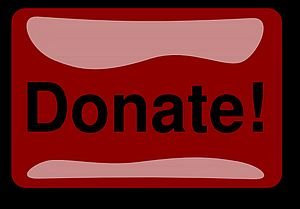
If you have something really nice that you don't truly want or need, you can sell it on eBay, Craigslist, or even at a garage sale, to earn some money to help finance your move (moving is never cheap, as anyone who has moved can attest).
Things that are not in good shape to be donated or sold (even for scrap metal....look into it, as it's a good way of making some extra cash) can be thrown away. However, before you toss it, determine if it can be recycled. You don't want to needlessly add to the landfills if you don't have to.
The important thing is to be harsh when going through your things.
What do you keep?
- 1) Things you actually need and/or use on a regular basis
- 2) Things that bring you happiness in some way
ONLY keep these things. And, be brutally honest with yourself in the happiness category. Does that thing you're considering keeping TRULY make you happy or bring you joy? Or, are you just telling yourself that because there's some deeper subconscious reason you need to uncover that's making you THINK you want to hold onto it?
Why Should We Get Rid of Our Stuff?
No one is suggesting we should get rid of everything we own, least of all me. I understand and recognize that there are legitimate things we need and use that we should keep. And, it is important for our mental health to keep things around us that make us happy. It uplifts our spirits, and that is always desirable.
But, when you look at all of the things we have and compare it to just how little most of the rest of the world has, the amount of consumer goods we buy becomes almost obnoxious. The vast majority of people on this planet live with so very little. Many of them don't have reliable electricity or clean water. Most of them only have the bare necessities, and may live in homes with three or more generations, and a dozen or less material items (which sometimes includes their clothes).
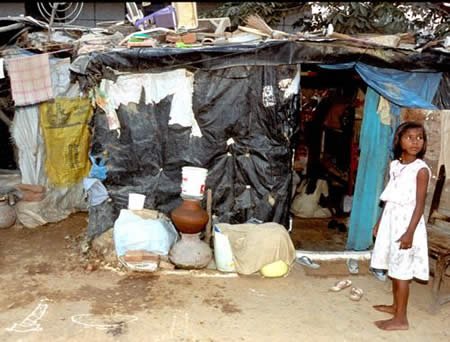
The unlucky ones don't even have that much.
Put any of the people from third world nations into even the poorest home in America, and they would think they were living in the lap of luxury.
I sponsor four kids overseas through a very reputable charity organization....one is in India and the other three are in different countries in Africa. I've seen through their letters and photos taken by the charity just what kind of poverty they live in, and I've also seen through their letters and charity updates just how much my meager contributions are doing to improve their lives.
It doesn't take much for people in wealthy nations like ours to completely change the lives of those in poorer nations for the better. The smallest contribution can give a kid in a country like Sierra Leone or Uganda a hope and chance for a better today and a limitless future.
We Can Change the World
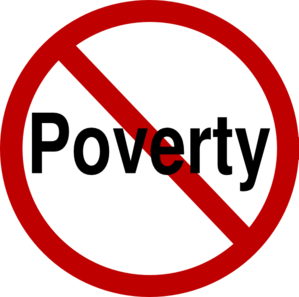
The rampant poverty in so much of the world, and how easy it would be to fix it if we all banded together, is part of the reason I oppose those really lavish and outrageously expensive American weddings. That money could go to something so much more positive and less selfish, such as giving the newlyweds a down payment on a house (or buying them a small one outright), or donating it to charity, so those who really need it can benefit.

Excessive consumption of material goods when there is still so much poverty in the world is a pretty selfish, self-centered way to live. I'm guilty of it. We're all guilty of it. But, we can change it.
Instead of buying things on impulse that we don't really need or want, we can donate the money we would have spent to good causes that truly help people.
We can also donate things we already have, but don't need, to places that will put them to good use in improving the lives of needy people and animals (hey, man, animals are our spiritual brothers and sisters in this universe, and deserve love, kindness, and respect as much as people, as far as I'm concerned).
We can buy less, so more resources are available to those in developing nations, so they are not exploited for their labor to make useless crap for us while they live on slave wages, so they don't have to sell their young daughters into arranged marriages to feed their other children, and so they can raise their standards of living, and maybe have a few nice things in their houses that simply make them happy, like we do.
Conclusion--Start Creating Bliss by Consuming Less

Everyone deserves that, not just us. By getting rid of stuff we don't need or use, and by buying less, we can help make that happen, and create a world that is happier, and more equal for everyone.
We'll also improve ourselves in the process by becoming psychologically and emotionally lighter, freer, and happier.
We can make the world a better place, while creating our own bliss, unburdened by the yoke of too many material things.
Oh, and did I mention less material consumption is good for the environment, too?
What are you waiting for?
Let's do it.
